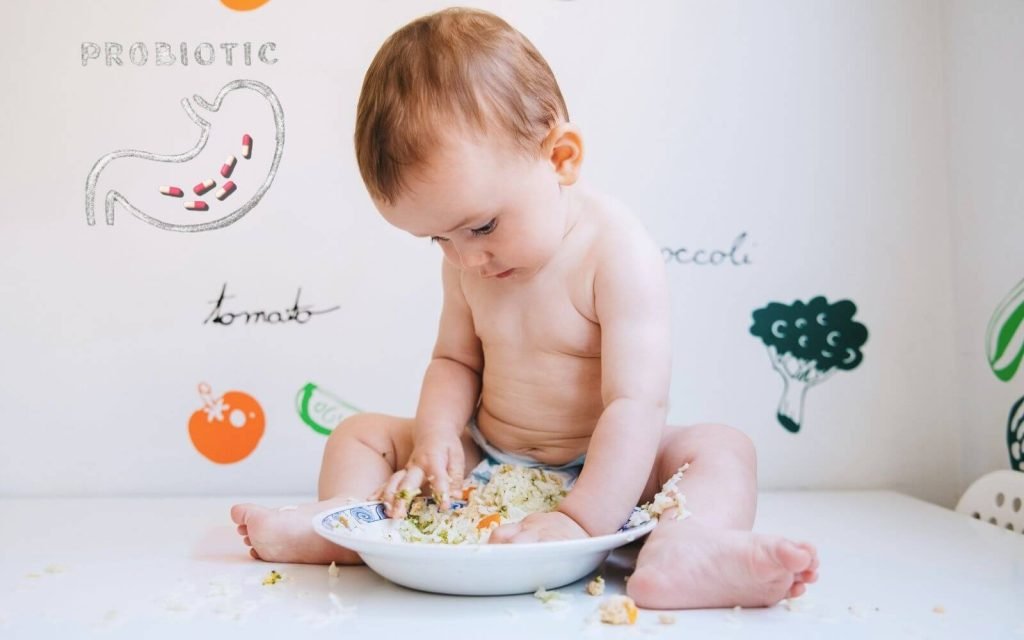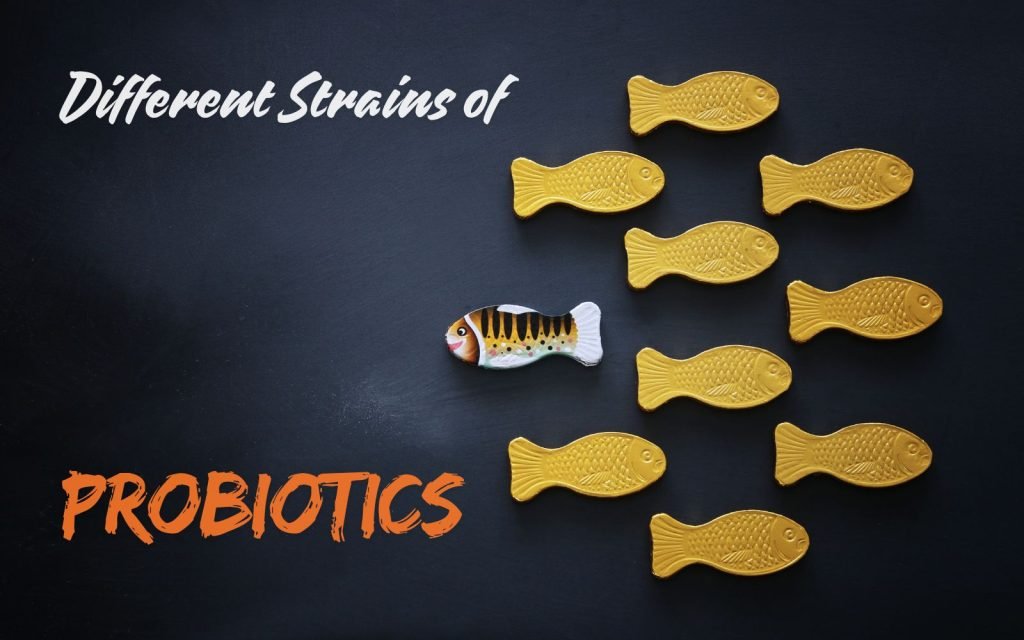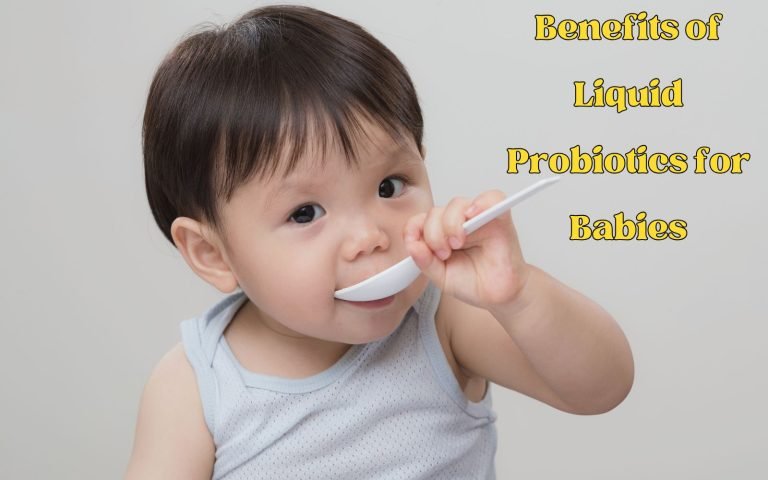Introducing Probiotics to Your Baby in 2025: A Effective Parent’s Guide

As a parent, you want the best for your baby’s health and happiness. Lately, more parents are curious about probiotics and whether they should introduce them to their little ones. With growing interest in the benefits of probiotics for babies, it’s crucial to understand what these “good bacteria” are and how they can support your baby’s development.
In this guide, we’ll cover everything you need to know about probiotics, from how they can help with digestion to how to safely introduce them, whether through breast milk, infant formula, or a probiotic supplement.
Key Takeaways – Introducing Probiotics to Your Baby
- Probiotics can help improve digestion, reduce colic, and boost immunity in babies.
- Infant probiotics are available in various forms, like probiotic drops, powders, or baby foods.
- Probiotics for babies are safe when given properly, but it’s important to talk to your doctor before starting any supplement.
- Common probiotic-rich foods, like yogurt and fermented foods, can be introduced once your baby starts solids.
What Are Probiotics?

Probiotics are live microorganisms, often called good bacteria, that are similar to the ones naturally found in your baby’s gut. These bacteria are vital for maintaining a healthy balance in the digestive tract, promoting better digestion, and supporting the immune system. In fact, research suggests that the right balance of bacteria in the gut can reduce the risk of some health problems, like digestive issues and infections.
Probiotics can be found in certain foods, such as like yogurt, sauerkraut, and kefir, and also in dietary supplements. For babies, probiotics are sometimes added to infant formula and are available as probiotic drops.
Health Benefits of Probiotics for Infants

Probiotics have many potential benefits, especially for newborns and breastfed infants. Below are some of the key health benefits of introducing probiotics to your baby:
1. Improved Gut Health
Introducing probiotics to babies helps establish a healthy balance of bacteria in the digestive system. A well-balanced gut can prevent common digestive problems like diarrhea or constipation. Babies who take probiotics may experience fewer episodes of discomfort, gas, and digestive distress.
2. Reduced Colic Symptoms
Infantile colic, marked by prolonged crying, can be caused by digestive tract discomfort. Studies have found that certain probiotics might reduce colic symptoms by balancing the gut bacteria and improving digestion.
3. Boosted Immune System
A significant part of your baby’s immune system is linked to their gut health. By maintaining a healthy gut microbiome, probiotics can help prevent infections and keep your baby healthier overall.
4. Prevent and Ease Diarrhea
Diarrhea in children is often caused by infections or antibiotics disrupting the gut bacteria. Probiotics can help by restoring the balance of good bacteria in the intestines, potentially preventing or easing diarrhea.
5. Allergy and Eczema Prevention
Some evidence that probiotics might help reduce the risk of allergies, including eczema, in infants, though more research is needed to confirm these findings. Early exposure to probiotics may influence the development of the immune system in ways that prevent allergic reactions.
How to Safely Introduce Probiotics to Your Baby?

When it comes to giving probiotics to your baby, safety is the top priority. Here’s how to introduce probiotics safely:
1. Consult Your Pediatrician
Before adding any probiotic supplement to your baby’s diet, talk to your doctor. They can recommend the best type of probiotic for your baby based on their specific needs and health conditions.
2. Choose the Right Probiotics for Babies
Not all probiotics are suitable for infants. Look for infant probiotics that contain strains such as lactobacillus and bifidobacteria, which are well-studied for use in babies. Some infant formula brands now contain probiotics, so check labels carefully. Breast milk or formula can also be supplemented with probiotic drops.
3. Start Slowly
Introduce probiotics gradually. Begin with a small dose and observe how your baby reacts. This slow approach can help you monitor for any potential side effects, such as mild gas or bloating.
4. Probiotics in Foods
As your baby starts eating solids, you can introduce natural probiotic sources like yogurt and kefir. These foods contain live microorganisms that support healthy digestion. Make sure to choose options labeled as containing live cultures and avoid those with added sugar.
Different Strains of Probiotics

Different strains of probiotics provide different benefits. Here are the most common strains recommended for babies:
- Lactobacillus rhamnosus: This strain is known for its ability to help with diarrhea and may also reduce the risk of colic.
- Bifidobacterium breve: This type of probiotic supports gut health and helps reduce inflammation in the digestive system.
- Lactobacillus reuteri: Studies show that this strain may help reduce colic symptoms by improving digestion.
When to Consider Giving Probiotics to Your Baby

Here are some specific situations where introducing probiotics might be beneficial for your baby:
- After Antibiotics: Antibiotics often disrupt the natural balance of gut bacteria. Probiotics may help restore that balance and reduce the risk of diarrhea following antibiotic use.
- Colic Relief: If your baby suffers from colic, probiotics like Lactobacillus reuteri could help ease their discomfort.
- Frequent Digestive Issues: Babies experiencing constant digestive problems, such as constipation or diarrhea, may benefit from taking probiotics.
Summary
In 2024, more parents are turning to probiotics as a way to support their baby’s digestive system and overall health. Probiotics for babies can offer a range of benefits, from improved gut health to enhanced immune support. By carefully selecting the right probiotic supplement and consulting with your pediatrician, you can help your baby thrive.
Frequently Asked Questions
1. Are Probiotics Safe for Babies?
Yes, probiotics are safe for babies when given correctly. Always consult with a pediatrician before adding any supplements to your baby’s diet.
2. What Are the Best Types of Probiotics for Infants?
Infant probiotics should contain strains like lactobacillus and bifidobacteria, which are beneficial for digestive and immune health.
3. Can Probiotics Help Prevent Colic?
Some studies suggest that probiotics help reduce colic symptoms by improving gut health. However, results can vary, so it’s important to consult your doctor.
4. How Do Probiotics Help with Diarrhea?
Probiotics can help restore the balance of good bacteria in the gut, which may prevent or ease diarrhea caused by infections or antibiotics.
5. Are Probiotics Regulated by the FDA?
Yes, probiotics as a dietary supplement are regulated by the FDA, but not as strictly as medications. Be sure to choose products from credible sources that provide clear labeling and instructions.





